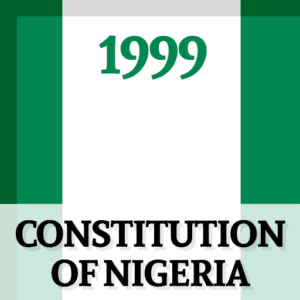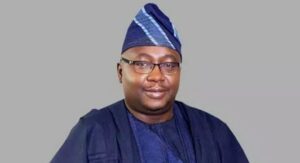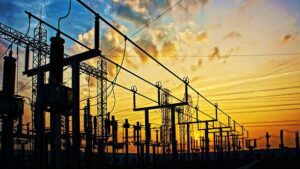
Uncollected PVCs: Many Nigerians risk losing voice on 2023 General Elections
2023 General Elections have been much in view at the top of political discourse most recently. The call for enlightened citizens participation has equally taken centre stage, particularly as it has been noised, the need for citizens to do so, to throw out underperforming public office holders, while electing credible candidates who posses the credence to run good governance. However, to elect candidates who would meet the demands of the pressing needs of governance towards the yearnings of the people, the instruments that would give the ambience to permit the people who are the electorates to do same, remain pertinent for discourse. Central to this is the registration of citizens into the voters record, and on a further note possession of Permanent Voters Card (PVC), which at present, constitute the ticket for casting vote in the laid down operating patterns of the election management body, the Independent National Electoral Commission (INEC).
However, topical issues surrounding these modalities remain subject of concern. As the build-up towards the 2023 General Elections gathers momentum, one of the subjects of concern has been that relating to voters’ apathy which recently has clouded elections in the Country. Factors responsible have largely, among others, been linked to failure of the Government to meet the yearnings of the masses. Hence, apathy to political processes, informing steering clear from polls, as recently observed, have been linked to the depth of disappointments to meet the expectations of the masses after repeated elections bringing in different administrations, which in their turn have largely failed to satisfy the demands of the people.
However, the question of whether such passiveness is a rational resort to protest such deficiencies in governance is one of deep concern. Recent realities from records of attitudes towards the 2023 General Elections have begun to have their reflections. Key notes of statistical records justifying that apathy may still be pronounced in the forthcoming elections have been taking course. For instance, data from the Independent National Electoral Commission (INEC) have revealed huge deficits in the record of claimed permanent voters card (PVC). It was disclosed by the Chairman of the Independent National Electoral Commission (INEC), Yakubu Mahmood, at the stakeholders meeting held in Osun State on Tuesday, 12th July, 2022, that about 476,062 PVCs were uncollected three days to the election set for Saturday, the 16th July, 2022. According to him, 76 percent of registered voters had already received their PVCs. “I appeal to all registered voters that have yet to collect their PVCs to seize the opportunity of the additional measures to do so. Many of the PVCs have already been collected by citizens. Of the 1,955,657 registered voters in Osun State, 1,479,595 (or 76 percent) have collected their cards as of Sunday, July 10, 2022,” the INEC Chairman was quoted.
Wednesday the 1st of June, 2022, INEC had raised fears over the 2023 elections relating to about 20 million PVCs, which as of the said date, was yet to be claimed by their owners. The commission had also decried the poor participation of citizens in the continuous voters’ registration exercise. INEC’s Deputy Director (Voter Education), Mary Nkem, in Abuja during the launch of the PVC Bus Drive project, organised by a non-governmental organisation, the Advocacy for Civic Engagement calling on Nigerians, especially the youth, to be actively involved in the process of electing new leaders, had said it is votes and not social media that would determine the winners of the 2023 general elections. She was quoted: “This CVR exercise began on June 30 2021; but we have discovered that between that time and a few weeks ago, the turnout has been relatively low. If the youth in this country would come out en masse to cast their votes, we will no longer be recording 15 or 20 per cent voter turnout in our elections, because we know that the population of the youth alone can make the difference.
“The youth no longer visit the social media, they basically live there today. Therefore, when you want to reach out to them, you must go to where you will meet them – social media. However, I will like to say that INEC does not conduct elections on social media neither do we count ballots on Twitter or Instagram. Our ballots are counted in the ballot box. It is only the ballot paper that enters into the ballot box that the commission counts. So, what does that mean? It means that on election day, people must go out to cast their votes. For you to be able to do so, you must be a registered voter and in possession of a PVC.”
As of same date, INEC in Ondo State had disclosed that 296,965 PVCs were yet to be collected in the state. The commission had noted that previously printed PVCs uncollected were still available for collection by the owners at the 18 local government INEC offices in state. The INEC Resident Electoral Commissioner in the state, Dr Rufus Akeju, while speaking with journalists at the commission’s headquarters office, in Akure, the state capital, had said, “The CVR exercise is now in its fourth phase which commenced on April 11 and will end on June 30, 2022. As at May 30, 2022, the registration figure stands at 123,981. A total of 21,749 PVCs were received by electorates in the state for the first and second phases of the CVR exercise and are currently being distributed at our various local government area offices. Those who registered during these phases are to avail themselves of this opportunity to collect their PVCs. However, 296,965 previously printed PVCs uncollected are still available for collection by the rightful owners at the various Local Government INEC Offices.”
31st May, 2022, INEC had lamented the high number of uncollected PVCs, putting the figure at about 20 million. INEC National Commissioner of FCT, Nasarawa, Kaduna and Plateau States, Mohammed Haruna, at the launch of a campaign to drive the collection of PVCs and increase participation in the continuous voter registration exercise had stated that statistics by INEC in 2019 showed that over 84 million PVCs were printed. Of the figure, the INEC Commissioner had disclosed that over 72 million were collected while over 11 million voter cards were left uncollected. The breakdown of the figure, revealed the South-West had the highest number of uncollected PVCs with over 3.4 million, followed by the North-West with over 1.9 million then the South-South with over 1.7 million. While the North-Central had about 1.5 million uncollected cards, the South-East recorded over 1.4 million, the North-East had over 800,000 and the FCT had about 318,000 uncollected voter’s cards.
“Ahead of the 2019 general elections, there were 84 million PVCs. I think close to 20 million (PVCs have not been collected). It may be a small percentage but in terms of absolute number, that’s huge. 20 million is probably more than the voters of so many West African countries put together,” he had said.
Non collection of PVCs has been identified by stakeholders to be, among other factors, connected to the death of some registered voters, relocation or voter apathy. Of these, the latter has been well pronounced among the factors of concern.
Citizens’ disposition to the 2023 General Elections in Nigeria remains a key subject in the discourse of the dimension which the election would take. Such disposition is key owing to the circumstantial factors which certain syndrome of citizens’ behaviour have the capacity to shape as it touches the political environment, vis-a-vis the value placed on the importance of the elections. While there are a number of phenomena in the political culture of the Nigerian populace, one concept among the reflective subjects of concern is apathy to voting.
It is apparent that years of bad governance have reduced many to lose total interest in voting, believing their votes doesn’t count. Over time, many who would push forth to the polling booth are increasingly relapsing into apathy. The profile of disinterested posture of the larger part of the citizens in recent times to elections have left a gap which opportunists would seize, the end result of which have neither brought any changes to bad governance, nor has it yielded the desideratum for the wishes of the masses. Hence, the subject of staying away from the polling booth has not been the best option for the citizens to protest bad governance.
The posture of apathy appears to be taking reflection at different points along the entire lines of the electoral process. Becoming disinterested at any point along the lines of the process, has been taking course at varying degrees. While to some, not even enrolling into the voters’ database is their own point of diminished return, some would have theirs after registration, while some others would be staying away for one reason or the other on the election day. As observed, the number of citizens who register for the PVC but do not go ahead to obtain their cards which would give them access to vote have been observed to be alarming in numbers. On 28th, June 2022, the Independent National Electoral Commission (INEC) in Lagos State, had disclosed that no less than 1,091,157 old Permanent Voter Cards (PVCs) were still uncollected by their owners in the State, just as the commission also made it known that after two months it flagged off distribution of 34,242 newly printed PVCs for new registrants, only 6,382 (just about 18.6 per cent) applicants had come for collection across the State.
The Resident Electoral Commissioner of INEC, Lagos, Mr Olusegun Agbaje, who made the disclosure at the Stakeholders’ Meeting on Election with leaders of political parties, at Ikeja, the State Capital on Tuesday, 28th June 2022, described as worrisome the low rate of PVCs collection across the 20 local government areas, adding that the turnout for the ongoing Continuous Voter Registration (CVR) was not impressive at the start. The development, according to him, puts the most populated State in the Country at fifth position nationwide in the number of new registered voters.
He was quoted, “The low rate of PVC collection in Lagos State is worrisome as only 6,382 PVCs out of 34,242 received from the Commission’s Headquarters for the first and second quarters CVR had been collected by their owners. This is just 18.6 per cent. Similarly for the old PVCs, a total of 1,091,157 are still uncollected by their owners. In view of the foregoing, I want to strongly urge you to continue to assist the Commission in mobilising the eligible citizens residing in Lagos State that are yet to collect their PVCs to take advantage of the opportunity provided by the ongoing collection of PVCs at the INEC LGA offices where they registered to collect their PVCs. As anyone without the PVC cannot vote during any election.”
Agbaje, who decried voter apathy syndrome, had urged the party leaders to increase political awareness. According to him, increased political education would, no doubt, increase the PVC collection rate and check voter apathy that had characterised past elections in the state. He disclosed that in Lagos State, 640,786 eligible voters had done the online registration before it ended on May 30, but as at June 20, only 338,955 had completed their registration. He observed only 1,156,590 out of 6,570,291 registered voters (17.6 per cent) participated in the 2019 General Election in Lagos State while only 104, 405 out of 1,343, 448 registered voters (7.8 per cent) participated in the 2020 Lagos East Senatorial District bye-election.
It is pertinent to note that no matter the enormity of preparation and resources injected into the processes of the elections, citizens’ participation is the centre point, without which the entire process is incomplete and unrepresentative of what the demands are in a democratic system.
The importance of voting in an election cannot be overemphasised. It remains a key part of citizens’ obligation. Beyond mere voting, participating concertedly and productively in electoral processes is a critical demand which behooves the citizens to perform if democracy in its true sense would take shape in the Country. As would be understood, lamentations over bad governance would not change the narratives. Staying away from polls is an insufficient measure to protest bad governance. If citizens do not take the bold step to not only choose credible candidates, but do so intelligently, conscientiously and diligently, the narratives may only worsen. Where citizens steer clear from participating meaningfully during electoral processes, at least with the minimum of voting rightly, it becomes unbalanced and unjustifiable to firmly call to check those they have not voted for, to perform as they (the masses) would wish.
It is thus, only by popular voting and formidable participation that the masses can concertedly bring into bear, candidates who can pilot the affairs of the Country meticulously and pragmatically as they would desire. Where the larger masses sit in apathy, it is only rational that the only few opportunists who pull their strength behind the process, would not only hijack same, but would establish their threshold to form a government of themselves and their cronies, ruling in their own self interest. The masses thus, would only have to see their fears frowning at them.
Apathy hence, may not be a reasonable way to protest the bad governance of successive administrations, but intelligent choices of choosing formidable candidates of excellence for the various positions, would better serve the interest of the greatest number. Reaching such point of records of intelligent choice, demands nothing but intelligent participation of the majority in the process. The record of the registration into the voters’ database without further step of obtaining the voter cards, in large number, do not reflect strong conviction to participate firmly in the process. Such disposition do not only reflect docility to the democratic process, but also, a waste of resources, which the tax payers themselves are the source.
Nigerians must come out large to reposition their disposition to, not only the electoral process as one of the tenets of democracy, but also do so, giving ample openness to the larger fabrics of the system as a whole.
Elections draw near, and the roles of citizens remain pertinent to have a sound process. The process as necessity demands in the democratic structure for election would be incomplete without meaningful participation by the populace who form the electorates. Election remain the central instrument for change of government in a democracy. Where the citizens are dissatisfied with the performance of successive governments, it is important for them to reflect on their choice of candidates and how to intelligently choose candidates who satisfy the test of credence to meet the demands of public offices. Shunning the polls may not be a rational resort, as election would remain the instrument for a change in government, as much as democracy stands as the system of government running in the Country. Nigerians must wake up to take the positive side to ensure the forth coming General Election is one they would take pride on, as an election that would go done into history as a remarkable process where their will and choice made the candidates who assumed offices to set the path for a turning point that began the move to their yearnings.



